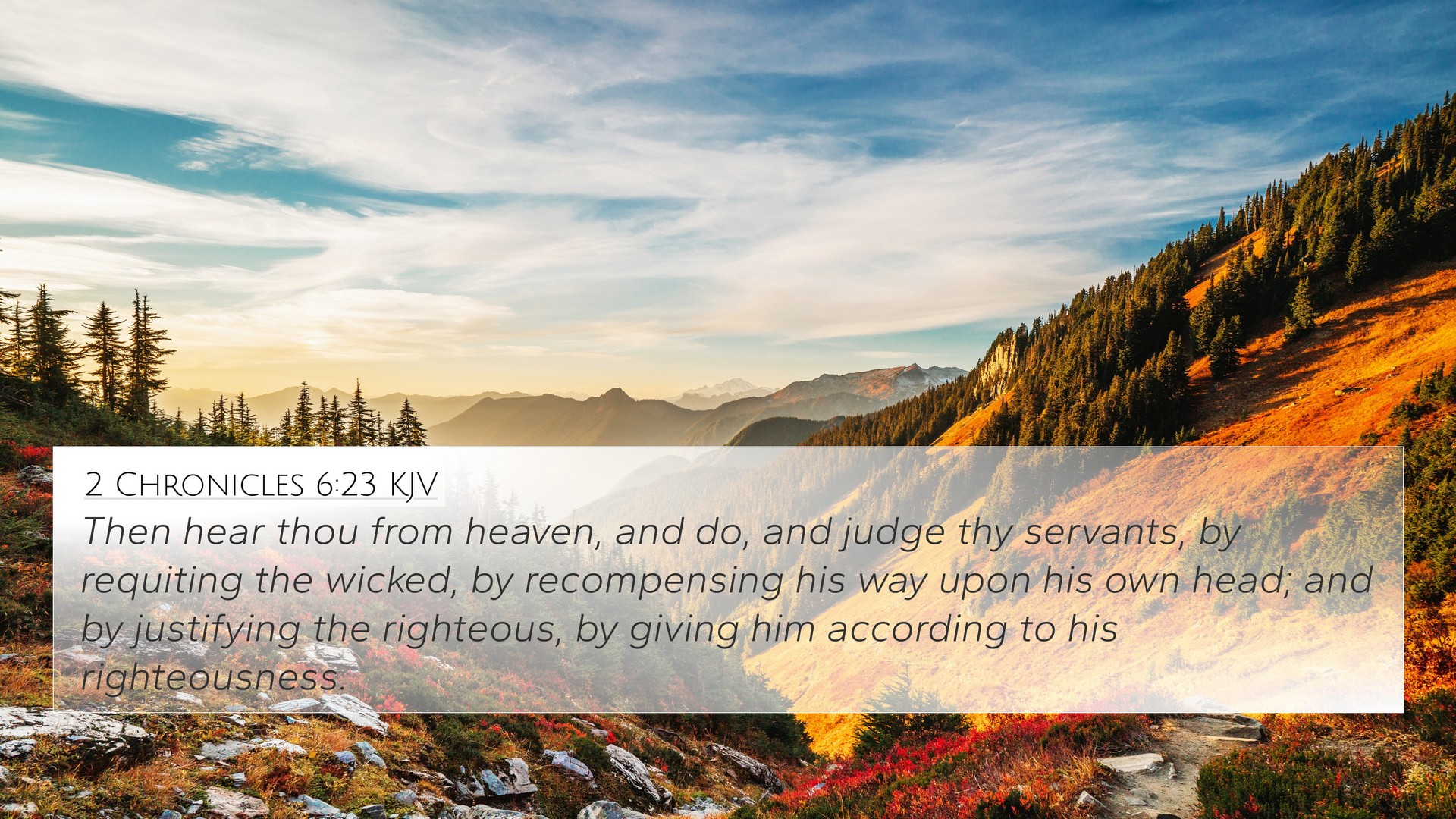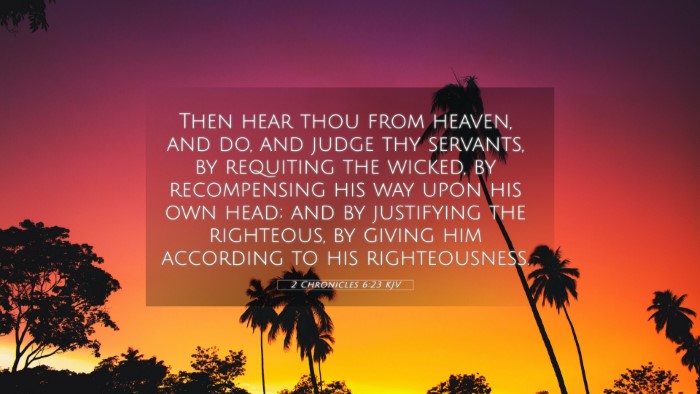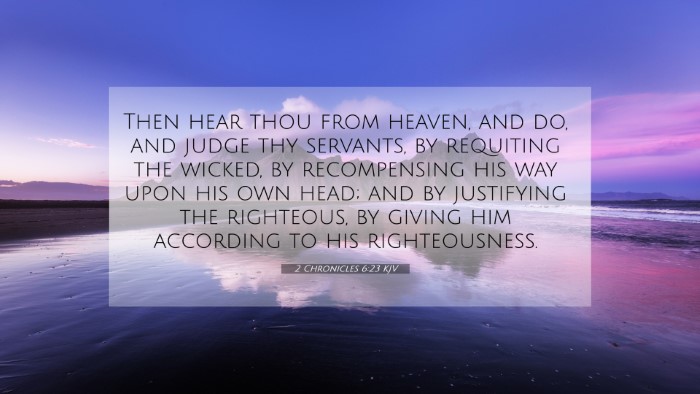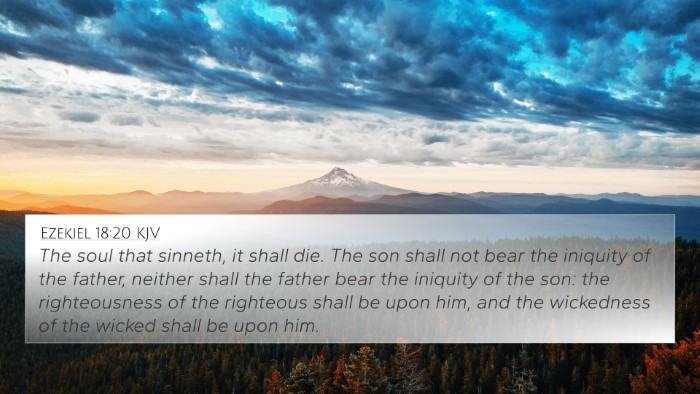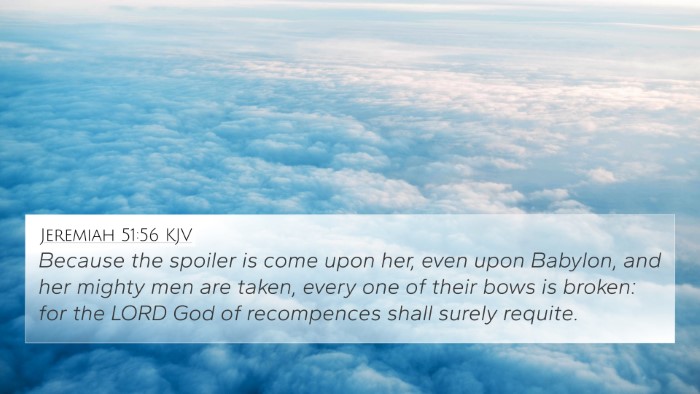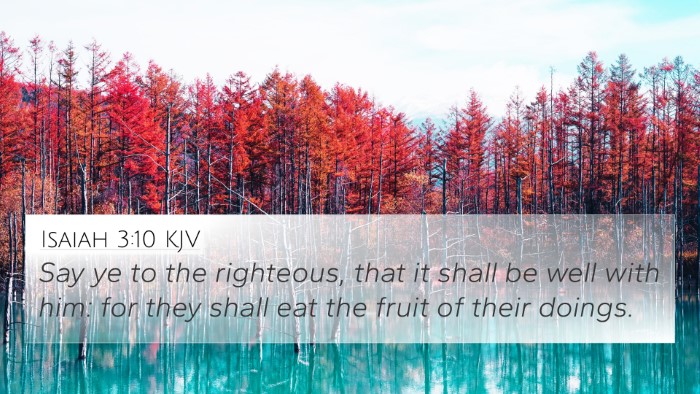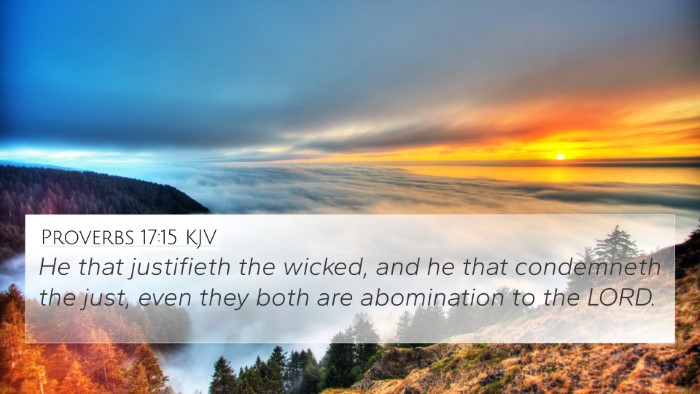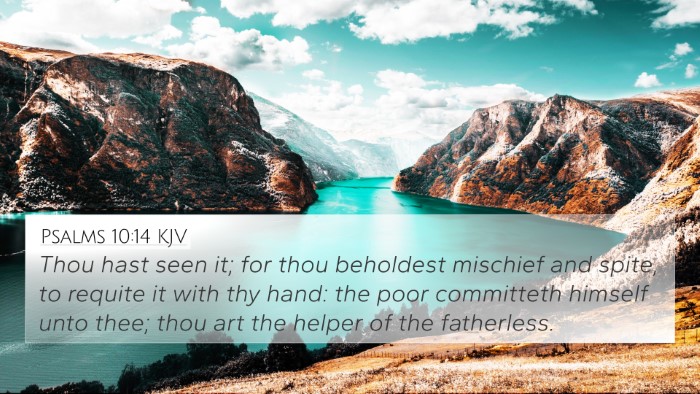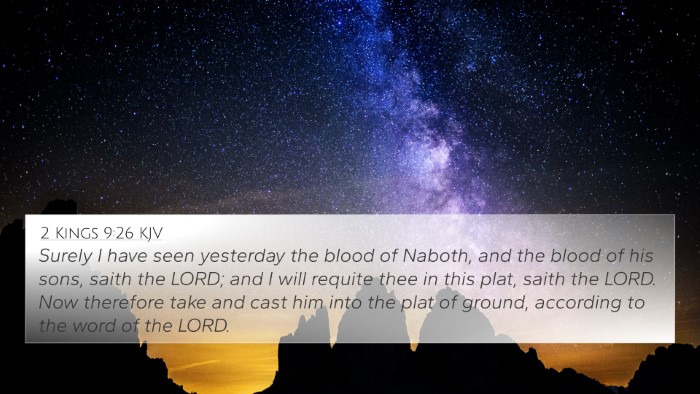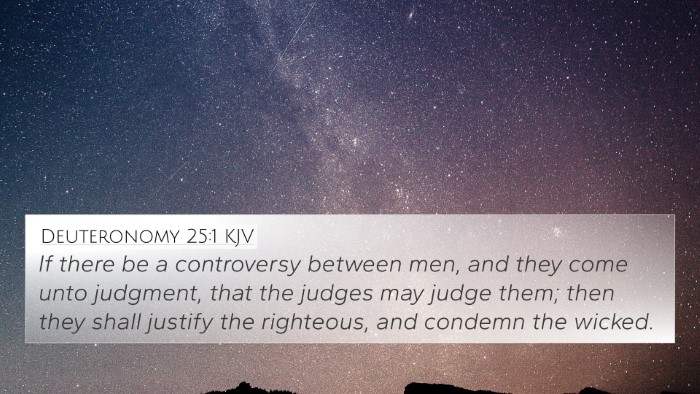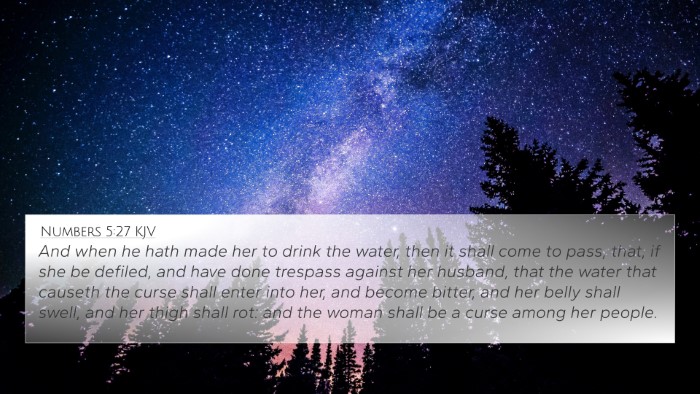Understanding 2 Chronicles 6:23
Bible Verse: 2 Chronicles 6:23
"Then hear thou from heaven, and do, and judge thy servants, by requiting the wicked, by recompensing his way upon his head, and by justifying the righteous, by giving him according to his righteousness."
Summary of Meaning
The verse encapsulates Solomon's prayer during the dedication of the Temple, where he beseeches God to hear the prayers of His people and to render justice accordingly. It reflects the notion of divine judgment where God is seen as the ultimate arbiter, rewarding the righteous and punishing the wicked.
Thematic Insights
- The Nature of Divine Justice: This verse emphasizes God's role in justice, where He hears the prayers and acts upon them. Similar themes are explored in Psalms 9:16 and Proverbs 11:21, which highlight God’s judicial nature.
- Prayer and Intercession: The importance of prayer as a means to communicate with God is reflected in this verse, akin to 1 John 5:14-15, which asserts the confidence we have in approaching God.
- Reward and Punishment: The dichotomy of God rewarding the righteous and punishing the wicked is a recurring theme in Scripture, seen in Galatians 6:7 and Matthew 16:27.
Commentary Insights
According to Matthew Henry, this verse succinctly encapsulates a prayer for justice, implying that God must respond to human actions with righteous judgment. He emphasizes that God's serenity amid human affairs ultimately highlights His omnipotence.
Albert Barnes notes that this prayer highlights the aspect of God's governance in human lives, assuring that He will judge justly, thus instilling a moral framework for the people. He draws parallels with the prophetic invitation to God's covenant people to uphold righteousness.
Adam Clarke expounds on the significance of Solomon's plea, stressing that it is not merely a ritual incantation; rather, it points toward a heartfelt desire for divine intervention and moral order. He underscores the essence of relying on divine justice in the face of human corruption.
Cross-References
This passage can be linked with several other verses that elucidate similar themes:
- Psalms 37:28: "For the Lord loves justice and does not forsake His saints; they are preserved forever." - Reflects God's commitment to protect the righteous.
- Romans 2:6: "Who will repay each person according to what they have done." - Highlights the New Testament understanding of divine recompense.
- James 1:12: "Blessed is the one who perseveres under trial because, having stood the test, that person will receive the crown of life that the Lord has promised to those who love him." - Connects enduring righteousness with divine reward.
- Ecclesiastes 3:17: "I said to myself, 'God will bring into judgment both the righteous and the wicked, for there will be a time for every activity, a time to judge every deed.'" - Affirms God’s ultimate judgment.
- Matthew 12:36-37: "But I tell you that everyone will have to give account on the day of judgment for every empty word they have spoken." - Reinforces the necessity of divine judgment on both speech and action.
- 2 Timothy 4:8: "Now there is in store for me the crown of righteousness, which the Lord, the righteous Judge, will award to me on that day." - Speaks of God’s reward for righteousness in the Christian faith.
- Psalms 50:6: "The heavens declare his righteousness, for God himself is judge." - Indicates the universality of God's justice.
Connections Between Bible Verses
Understanding 2 Chronicles 6:23 opens a gateway to explore various Bible verse cross-references. Each connected verse enriches the understanding of God’s nature in terms of justice, judgment, and righteousness.
By studying these connections between Bible verses, we can observe how this theme of divine governance recurs throughout both the Old and New Testaments, offering a coherent narrative on moral law and divine justice. The importance of Bible cross-referencing can be emphasized as it aids in comprehending the multifaceted character of God’s dealings with humanity.
Tools for Bible Cross-Referencing
Utilizing Bible concordance and other Bible cross-reference guides can further enhance one's study. These tools allow for effective cross-reference Bible study, enabling deeper insights into themes and doctrines as they reveal how to find cross-references in the Bible.
Conclusion
2 Chronicles 6:23 serves as a profound reminder of God's justice and righteousness. The interplay of divine retribution and mercy fosters an imperative for believers to live righteously. Engaging in systematic cross-referencing biblical texts and analyzing thematic Bible verse connections is essential in understanding the broader implications of this verse within the context of the entirety of Scripture.
